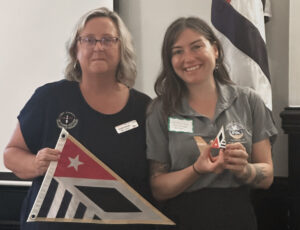News
Riverkeepers speak out at biogas permit public hearing
Posted on April 7th, 2022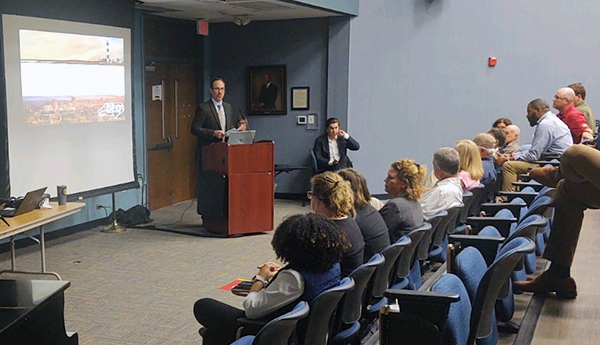
 Pamlico-Tar Riverkeeper Jill Howell and Neuse Riverkeeper Samantha Krop traveled to Kenansville this week to speak out about biogas at a North Carolina Department of Environmental Quality public hearing. DEQ is trying to figure out what goes into the permit for the swine industry’s facilities installing biogas technology. Sound Rivers is making sure they know it’s a bad idea to place new technology on top of the outdated, and environmentally harmful, old technology of the lagoon and sprayfield system, so there must be more oversight from DEQ in this permit.
Pamlico-Tar Riverkeeper Jill Howell and Neuse Riverkeeper Samantha Krop traveled to Kenansville this week to speak out about biogas at a North Carolina Department of Environmental Quality public hearing. DEQ is trying to figure out what goes into the permit for the swine industry’s facilities installing biogas technology. Sound Rivers is making sure they know it’s a bad idea to place new technology on top of the outdated, and environmentally harmful, old technology of the lagoon and sprayfield system, so there must be more oversight from DEQ in this permit.
Watch Sound Rivers’ video animation about biogas:
“Overall, the public hearing was pretty unsurprising. There were lots of representatives from industry, as well as a number of CAFO operators, speaking in favor of the general permit and touting biogas, again, as a clean, renewable form of energy that was good for farmers and good for the environment,” Jill said. “There were also those there, including myself, who do not want to see this technology expand across North Carolina, especially without a more protective, robust permit regulating them.”
Jill said those speaking out for more DEQ oversight included several Riverkeepers, the NAACP of Duplin County, Southern Environmental Law Center and representatives from Waterkeeper Alliance. Those supporting the draft permit included Smithfield Foods, North Carolina Farm Bureau and a few swine facility operators.
Here’s what Jill had to say in her comments to DEQ:
My name is Jillian Howell. I am the Pamlico-Tar Riverkeeper with Sound Rivers, an environmental nonprofit that works to protect, monitor and enhance the Tar-Pamlico and Neuse River watersheds. My comments are specifically on the general permit for installation of anaerobic digesters on swine CAFOs.
I agree with a lot of the issues brought up by some of the speakers before me — concerns about leaks in pipelines, concerns for nearby communities, not evaluating cumulative impacts, environmental justice concerns and DEQ’s inability to enforce the current swine general permit — but will spend my remaining time highlighting two points: the first is inclusion of more robust monitoring requirements in this permit, and the second is exclusion of certain facilities from eligibility of coverage under this permit.
On the first point — the draft permit currently includes quarterly wastewater sampling of digester influent and effluent for a number of constituents. This should remain in the final permit, and additional monitoring of groundwater on site and nearby surface water sampling should also be included. Research conducted by East Carolina University, and published in July 2021, at a hog CAFO with an anaerobic digester and covered lagoons in Harnett County showed elevated nitrogen levels in downstream surface waters and at groundwater seeps on site. Without more robust monitoring requirements for this new technology, this agency cannot ensure that groundwater and surface waters at and near these facilities are not being impacted.
On the second point — just because this is a general permit does not mean that all hog CAFOs have to be, nor should they be, eligible for coverage. The agency stated earlier that CAFOs located within the 100-year floodplain are not eligible for coverage, however, this should extend to those located in the 500-year floodplain, as well as facilities that have flooded during hurricanes Matthew and Florence, even if they are outside of the floodplain. Facilities vulnerable to flooding should not be eligible for installation of new technology that will lock them in place. In addition to flood-prone facilities, those that have a history of violations under the current swine general permit should not be eligible for coverage under this permit. If a facility has shown they cannot properly manage waste and cannot abide by the terms of their current permit, they should not be eligible for another one.
Thank you for the opportunity to speak and for your consideration of my comments.
Related News
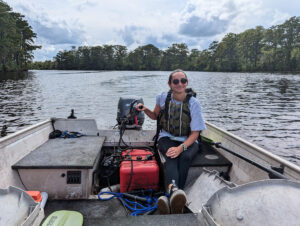
Riverkeeper monitoring Tar-Pamlico Water Trail
July 25th 2024

Rain ramps up trash-trap cleanouts
July 25th 2024

Riverkeeper, intern take on emergency trash trap cleanout
July 25th 2024

Tar-Pam Riverkeeper investigates Cub Creek turbidity
July 25th 2024
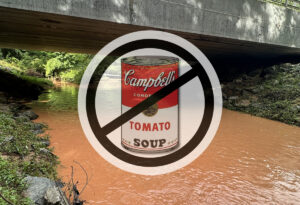
Heavy rains lead to sky-high turbidity on Lick Creek
July 25th 2024
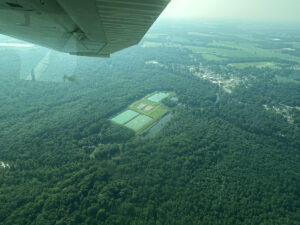
Riverkeeper: What goes up, must come down
July 18th 2024
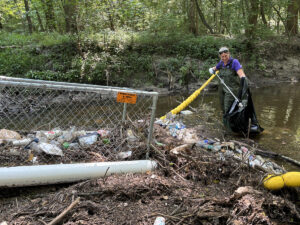
Greenville’s trash trap gets emergency cleanout
July 18th 2024

Sound Rivers gets close up of cyanobacteria
July 18th 2024
